Ah, the dreaded puppy teenage rebellion phase is here. It’s certainly heartwarming to see your pup go through different life stages, but it can also be quite a headache if they suddenly start acting up and behaving like a true teenager. In this guide, we’re going to discuss why and when puppies go through their teenage rebellion phase and how you can successfully survive this period in their life.
Table of Contents
- Dealing With Puppy Teenage Rebellion Phase: Introduction
- Why Is My Puppy Being Rebellious?
- When Does The Teenage Phase Start In Dogs?
- How Do You Deal With A Rebellious Puppy?
- When Should You Consult A Vet Or Hire A Trainer?
- Dealing With Puppy Teenage Rebellion Phase: FAQs
- Dealing With Puppy Teenage Rebellion Phase: Final Thoughts
Dealing With Puppy Teenage Rebellion Phase: Introduction
Like humans, dogs experience different phases in their lifetime. It starts with puppyhood, then transitions into adolescence, a.k.a the teenage phase, before reaching adulthood. In their later years, they enter the golden senior stage of life where they likely become much calmer, especially when compared with a teenage pup in its full puberty.
Needless to say, in every life stage your precious pooch will have different needs. Their behavior will vary in those different life stages and they’ll also go through physical changes. As you’d expect from a living being.
The puppy teenage rebellion phase is certainly one of the more testing periods you’ll have to go through alongside your pup. But don’t worry, it’s just a temporary period that you’ll have to push through. If you have the end goal in sight, you’ll have a much easier time surviving the rebellious phase.
Unfortunately, most puppies end up in shelters and rescues during this very period in their life. Not all people are equipped to deal with the changes and challenges that come with a puppy’s adolescence stage of life. That’s why it’s so crucial to think through all the pros and cons of adopting a dog before you do it. But as you’ve made your way to this guide, we assume you’re taking your responsibility of being a dog parent seriously, so rehoming a dog just because they’re going through a totally natural change in their life is out of the question.
Why Is My Puppy Being Rebellious?
If all of a sudden your puppy is acting rebellious, it’s highly likely that they’ve entered the adolescence stage in their life, a.k.a the teenage phase. Essentially, your puppy is now going through puberty, with all of their hormones being out of whack, and also them starting to feel more curious and interested in the world around them. This is also the time where your puppy reaches sexual maturity.
You’ll likely notice your pup rebelling in many ways, such as seemingly forgetting about all of their training or refusing to obey to your commands. They may have difficulty with leash walking, even when they’ve never had issues with it before, and they may even exhibit some signs of aggression. Excessive barking, jumping, scratching and digging, chewing, and biting are all common behaviors we see teenage puppies do, most of the time quite annoyingly. Basically, doing whatever they can to test your boundaries.
It’s also not uncommon for them to start urine marking, especially if they haven’t been spayed or neutered just yet. However, this is usually more common in male pups. On that note, if your otherwise potty-trained dog starts to suddenly pee and poop inside the house, it could also indicate that there’s an underlying medical condition that requires immediate veterinary attention.
The annoying teenage phase isn’t that uncommon and most dog owners, including Doodle owners, have had to deal with it at one point. Our newsletter poll results confirm that:
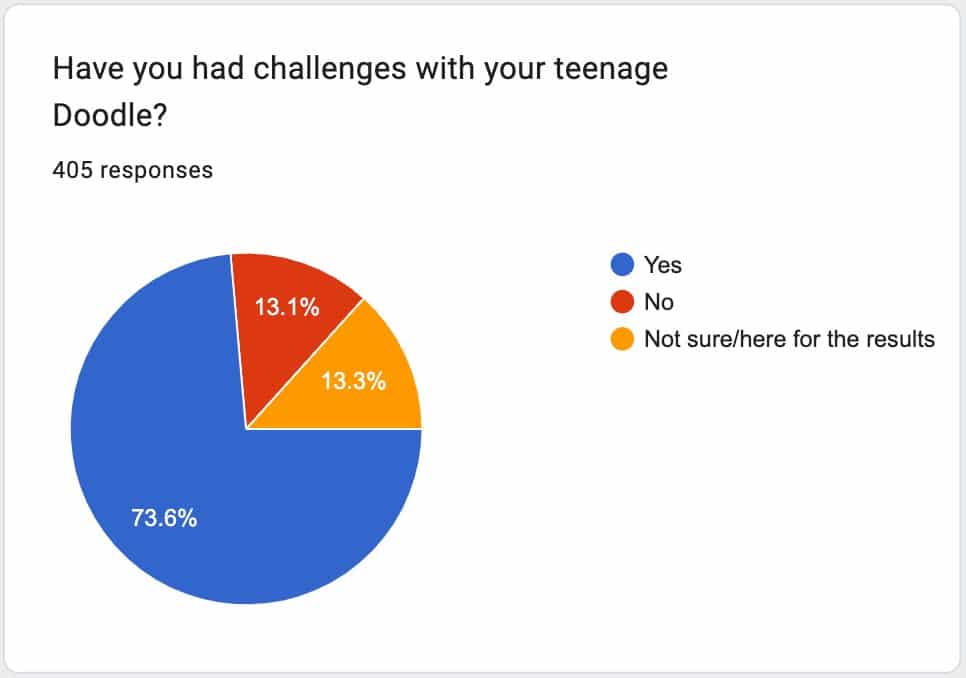
When Does The Teenage Phase Start In Dogs?
Your puppy’s teenage rebellion phase will likely start around six months of age, give or take. Some pups may enter their teenage phase a bit earlier, around four or five months old, whereas others may enter adolescence at seven to eight months of age. The adolescence stage of your puppy’s life can last anywhere to their first birthday, but even up to 24 months of age.
The start and end of your dog’s teenage phase will depend on a variety of factors. However, a dog’s size and breed can usually tell us a lot about what to expect. As smaller dogs grow faster, they also tend to reach their adolescence stage sooner and reach adulthood earlier as well. In contrast, larger-sized dogs generally enter their teenage phase a bit later than smaller dogs. They also tend to stay teenagers for longer, too.
How Do You Deal With A Rebellious Puppy?
So, how to deal with the puppy teenage rebellion stage? Here are our top tips on how you and your pooch can survive this period in their life, building an even stronger bond during the process.
Stay Patient And Consistent With Training
The most common issue that dog owners face during the adolescence phase is that all of the training seems to have been for nothing. Your puppy was previously so successful in obedience training and behaving well, but all of a sudden nothing seems to work anymore. Behavioral issues are extremely common during this time.
That’s why it’s all the more important that you continue training, including crate training and potty training, and socializing your puppy so that they won’t fully forget all the strides you’ve made in the past. It might feel like you’re starting all over again, but as long as you stay patient and consistent with your pup, they will eventually understand what’s expected of them.
Also, don’t assume that your pup will simply outgrow their teenage rebellion. Yes, it’s normal for them to start showing certain behavioral issues. However, you shouldn’t reward your pup for misbehaving nor should you just let them act out whichever way they want to. Consistency is key.
Keep in mind that it’s not just about hormones, but also about your puppy becoming more curious about all sorts of new experiences, sights, sounds, people, and other pets they may encounter. So that explains why your pup might start pulling the leash when you’re out on your daily walking route or even try to eat poop along the way.
Beat Stress, Boredom, And Frustration With Exercises
Due to all the increased energy and curiosity that puppies have during this life stage, it’s absolutely essential that you put great emphasis on exercising your dog on a daily basis. Boredom is one of the leading causes of destructive behavior in dogs and it can also lead to stress and frustration very easily.
For instance, you may have to take your pooch out for longer walks if you see them still being too hyper in the evenings. It’s also a great way for your pup to explore more of those fun smells while out and about. On the other hand, you don’t want to go too overboard with the exercise. Once your puppy becomes overtired, they may start acting out even worse than before. Also, it’s not beneficial for your puppy’s optimal growth and health if you overexert them.
You should also make sure that your dog gets to play with all sorts of fun toys throughout the day. Chew toys are always a good idea, but puzzle toys and interactive games will be excellent for mental stimulation as well as physical exercise. Basically, you want to keep your dog as entertained and stimulated as possible so that they can express all that pent up energy.
Find New Ways To Exercise And Stimulate Your Dog
Mixing things up can be a great way to provide even further enrichment for your ever evolving and growing pup. In addition to increasing the time you spend exercising and playing with your furry best pal, you might also want to switch things up with new, more exciting things.
For instance, you can start talking a different walking route every day so that your puppy has new places and sights and smells to explore. We also recommend you start experimenting with new things like getting new, different toys for your pup and also playing new games with your pup. If you usually play fetch with them, perhaps switch it up and play tug-of-war or hide-and-seek.
Another great hack is to give your puppy different treats than they’re used to. Something that’s extra flavorful and smells strong can make a huge change in your pup’s motivation to obey. Again, something new is bound to be that much more exciting but also motivating for them. Likewise, try new training techniques and advanced training methods so that your puppy won’t get bored.
Feed Your Dog Nutritionally Balanced Meals
Regardless of your dog’s age and life stage, a healthy and balanced, high-quality dog food is important for their general health and wellbeing. However, during puppyhood, including the adolescence stage, puppies need a specially formulated puppy food that takes into account their needs during this delicate life stage. Not only do puppies have higher caloric needs, they also need a different set of nutrients that promote their optimal growth, including proper bone formation and their overall development.
We also recommend you consider your dog’s estimated adult size. For larger breeds and for smaller breeds, there are often different dry kibbles and wet foods that take into account their specific needs.
Moreover, be sure to feed your pup the right amount of food so as to prevent overeating or undereating. Overeating can quickly lead to issues with weight management, whereas undereating can lead to nutritional deficiencies and issues with growth.
Get Your Dog Spayed Or Neutered
During the puppy teenage rebellion, your pup’s hormones are all over the place, especially once they reach sexual maturity. This can often lead to many unwanted behaviors like trying to escape the home to mate or marking with urine around the house. Naturally, a teenage pup can feel quite frustrated during this time and it could also lead to aggression.
Usually, dogs should be spayed or neutered some time around six months of age. However, we recommend you consult about the exact timeline with your veterinarian, as this will depend on your dog’s size and current health.
We must stress that it’s your responsibility as a dog owner to have your dog neutered or spayed. There are many common misconceptions going around, such as if a female dog doesn’t have at least one litter, they feel somehow sad or as if they’re missing out on something. All of these misconceptions are exactly that – untrue – so please consider your dog’s health and wellbeing and don’t contribute to the overpopulation of dogs and puppies that end up in shelters.
Don’t Punish Your Puppy For Being A Teenager
Positive reinforcement is the way to go with any dog, regardless of their breed, size, age, or personality. Understandably, you might feel very frustrated on some days when your pup just won’t listen to you and always gets up to no good. But that’s no reason to ever scold or punish your little pal. In fact, punishing your dog will likely have the opposite effect and it’ll also chip away at the bond you’ve worked so hard to build with them.
Remember that your puppy’s teenage rebellion has nothing to do with you. It’s just a phase in their life, similar to what humans experience during teenage years. So don’t take it personally and like we said before, stay consistent and patient with your pup.
When Should You Consult A Vet Or Hire A Trainer?
As your puppy’s teenage rebellion phase can be taxing for both you and your pup, it won’t hurt to get some guidance from professionals in the field. Since during puppyhood you probably take your pooch to the vet quite often, your first point of contact can be your vet who might be able to share with you some of their best tips and tricks or connect you with a professional dog trainer who can help.
Another option you can look into is Baxter & Bella’s Online Puppy School. This online program is so helpful for all puppy and dog owners. It has countless resources on various training techniques and methods as well as lessons on how to tackle many different behavioral issues. What’s best about it is that for just a one-time fee, you’ll get lifetime access to the program and you can cover each topic at your own pace.
Keep in mind that sudden changes in behavior, such as becoming aggressive, can also indicate that your pup is silently suffering from a medical condition. Always keep a close eye on your pup and try to study their behavior and mannerisms as much as possible. If you’re in doubt, contact your vet about the next steps. The sooner you get to the bottom of it, the better the prognosis.
Dealing With Puppy Teenage Rebellion Phase: FAQs
The puppy rebellious stage usually starts around six months of age and can last anywhere from 12, 18, to up to 24 months old. This largely depends on your dog’s size and breed, as larger dogs enter their teenage stage later on and also stay there for longer. On the other hand, smaller breeds will likely enter adolescence even before the six month mark and also reach adulthood sooner.
Yes, like humans, all puppies go through the rebellious stage where they won’t listen to anything you say. Of course, some pups may rebel more during their teenage phase, and some to a lesser extent. However, the puppy teenage rebellion stage is most definitely something you should take into account *before* adopting a puppy. Fortunately, this is just a temporary period in your puppy’s life and they will outgrow it some time around their first or second birthday.
If a puppy is simply tired, they may be calm and relaxed, inclined to sleep and chill. However, if your puppy is overtired, it’s not uncommon for them to start acting up in the form of excessive barking, nipping, or chewing. They might get hyperactive and seemingly super energetic. It’s quite similar to how overly tired human babies and kids behave. The more tired your pup gets and won’t be able to have some rest, the more they might start misbehaving. Considering that puppies need a lot of sleep, be sure to provide plenty of rest, nap breaks, and a nice long night sleep for your pup each day. Creating a schedule for your puppy and sticking to it each day will help prevent this issue.
Dealing With Puppy Teenage Rebellion Phase: Final Thoughts
Bringing home a new puppy is such a wonderful experience, but it does come with a whole lotta responsibilities with it. One of the more challenging parts of it being the puppy teenage rebellion stage. But if you know what to expect and tackle it with the right approach, you can surely survive this delicate life stage with your pup happily by your side. And soon enough, they become the well-rounded and well-behaved adult that you’ve always dreamed of!
Learn How to Stop Shavedowns For Good & Keep Matting At Bay!

Discover the PROPER Doodle coat care routine that gets your pup to cooperate…helps you nip tangles in the bud…and gets groomers to do exactly what you want.
Plus, get $520 worth of Bonus Materials for FREE, including:- Doodle Parenthood Community and Support Group ($190 value)
- Custom Doodle Coat Care Plan Lifetime Access ($75 value)
- Easy to Use Doodle Grooming Tracker ($20 value)
- And MORE!

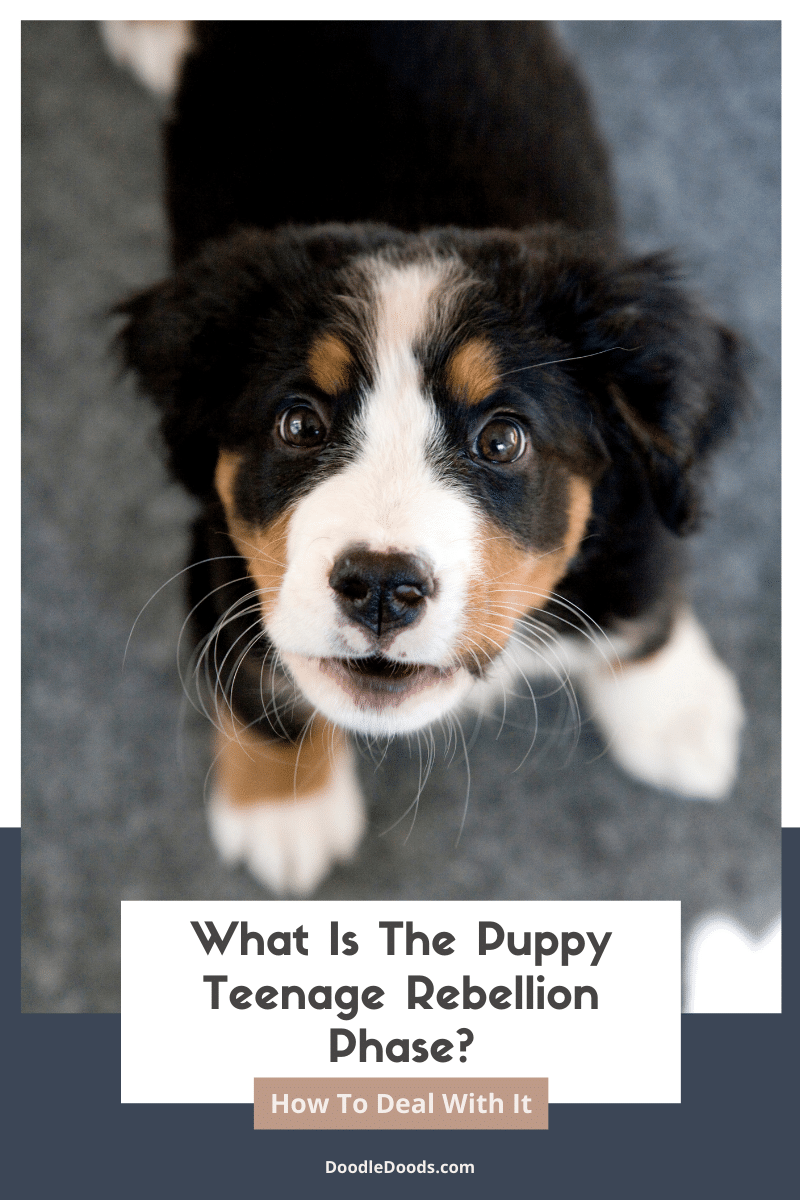


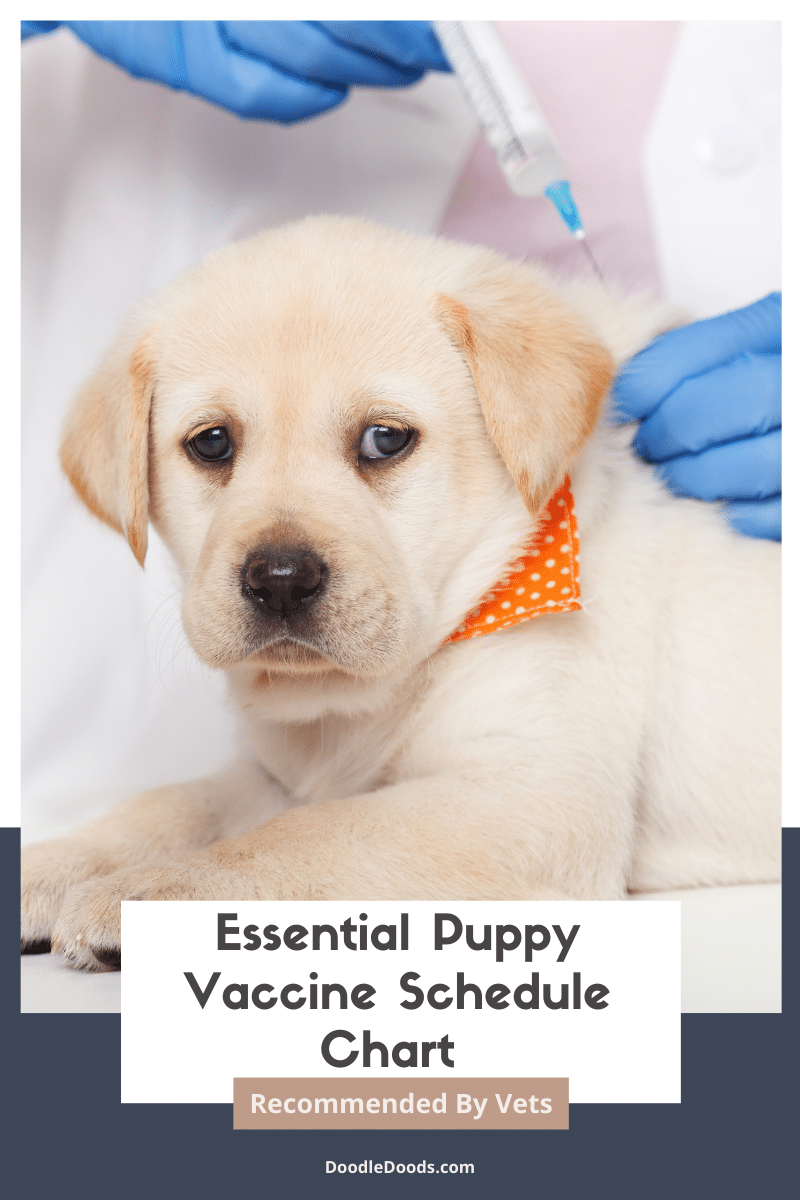


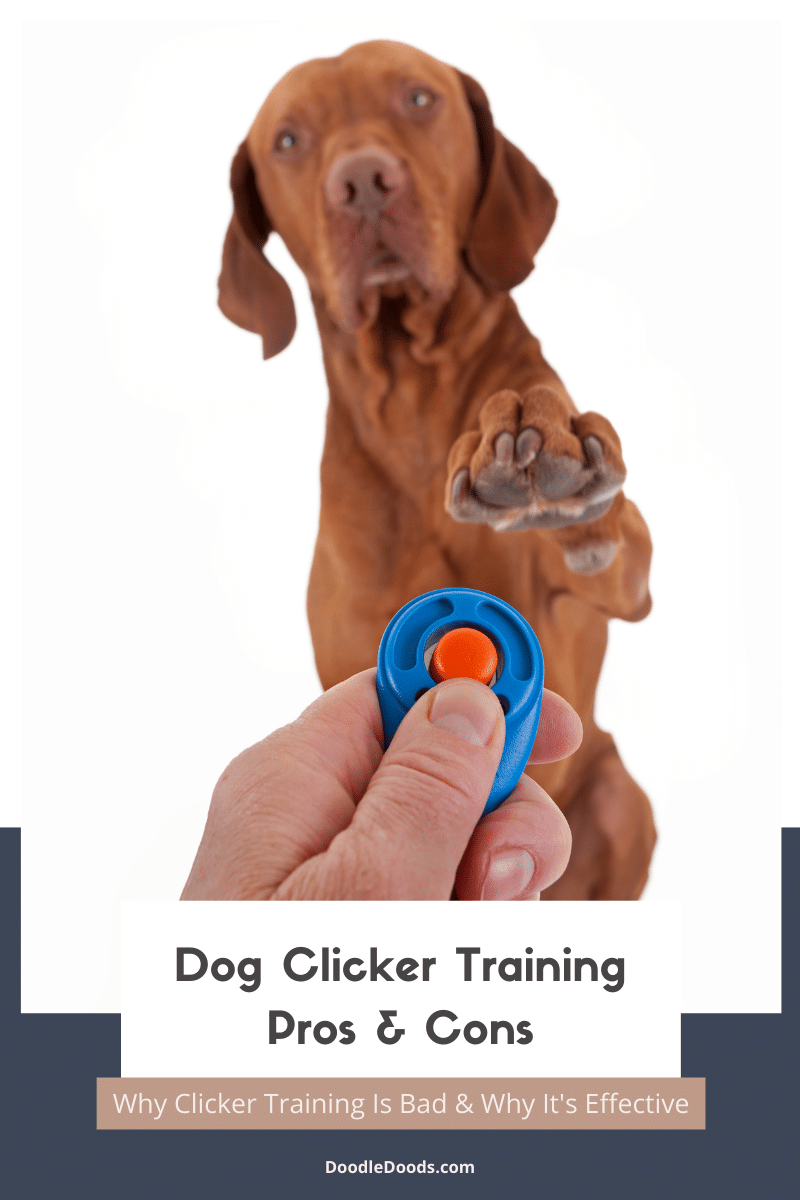


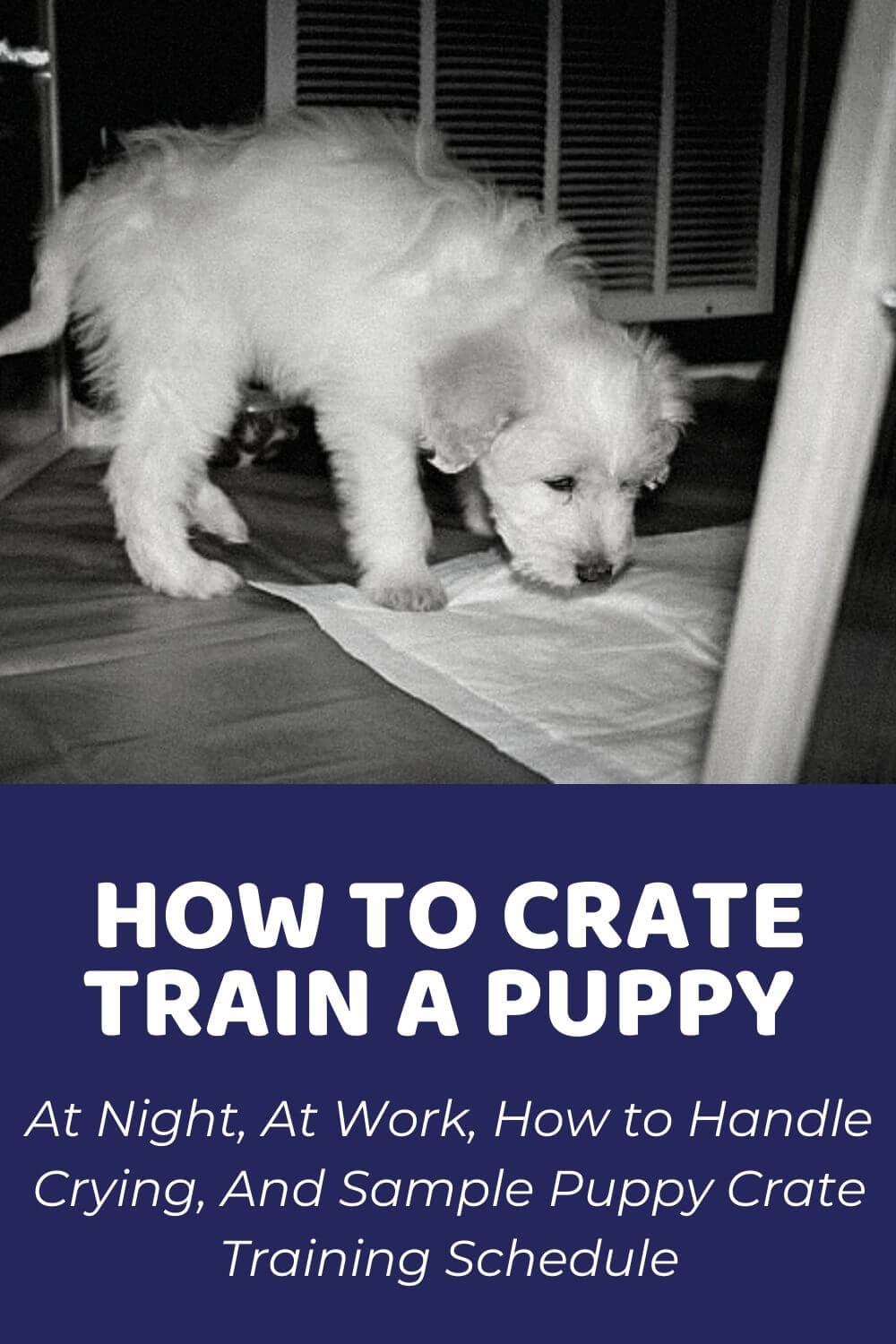
This article was very helpful. I have two teen labradoodles brothers. They do drive me (in a good way), I love them to pieces. But I will definitely be happy when this phase is done.
March 31, 2024 at 5:51 pm